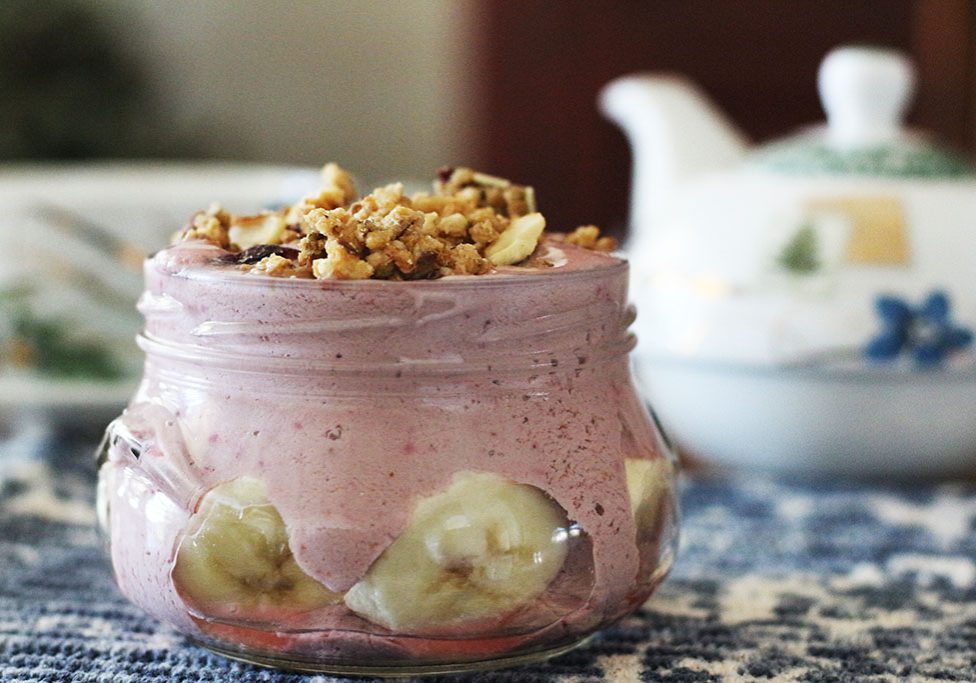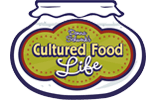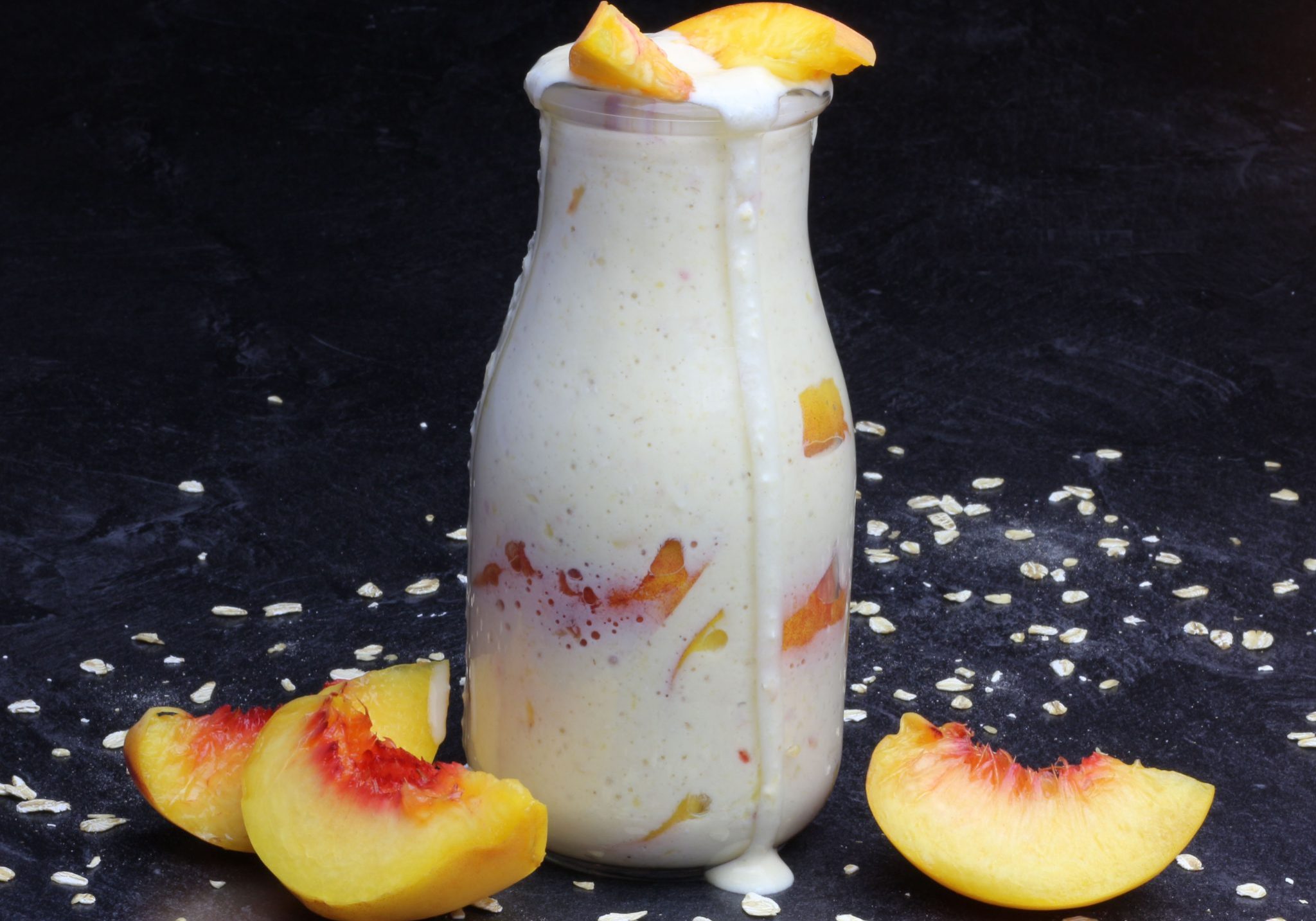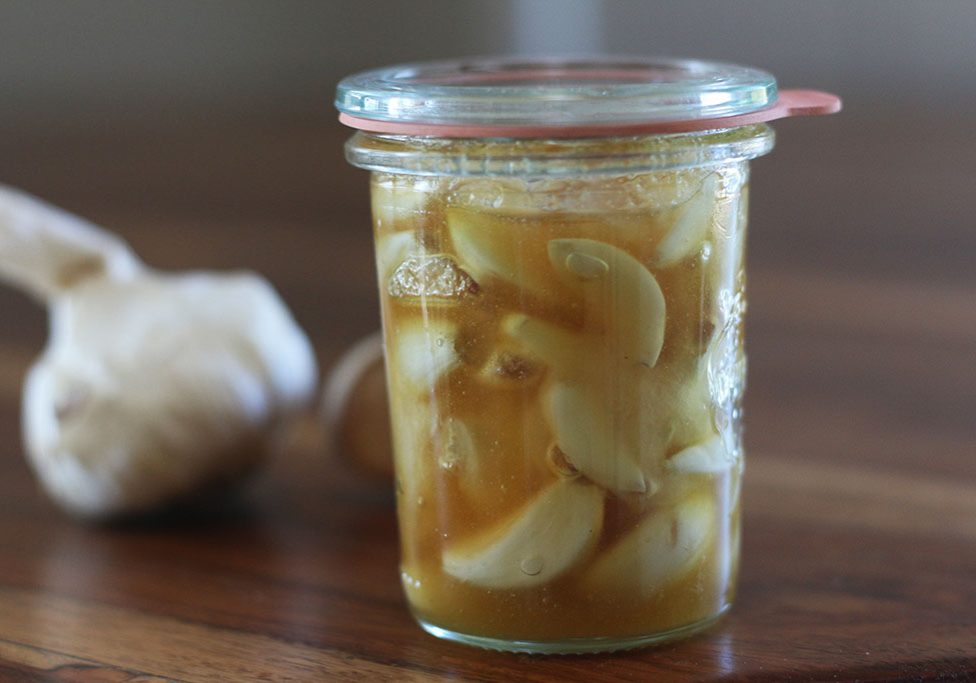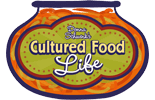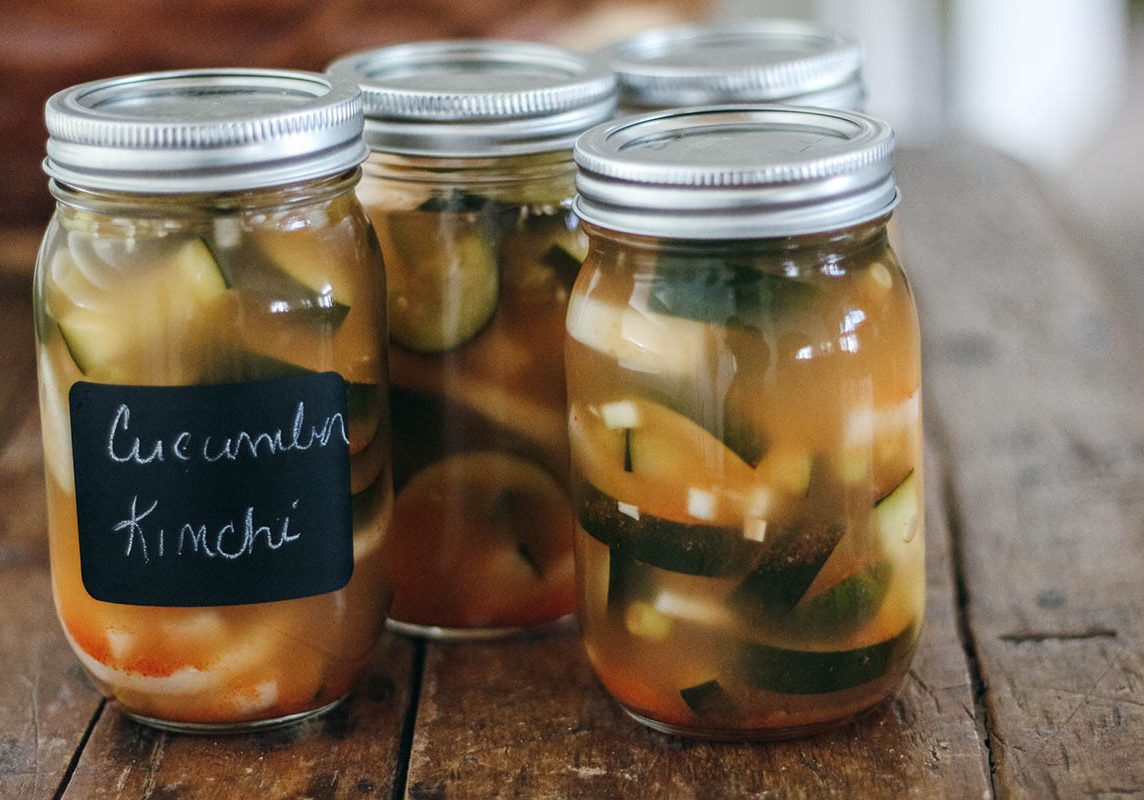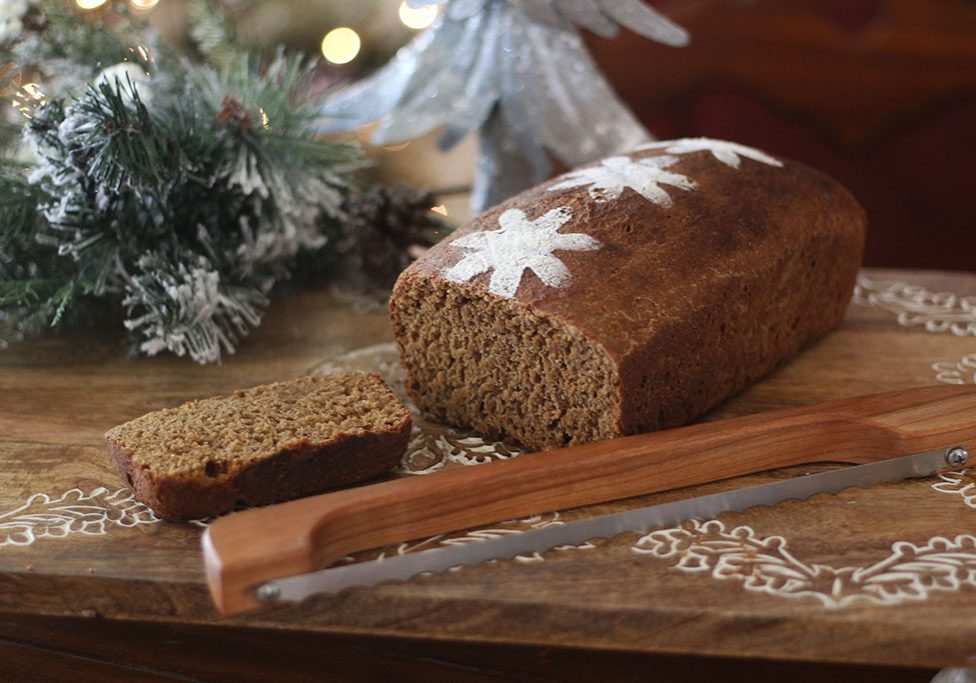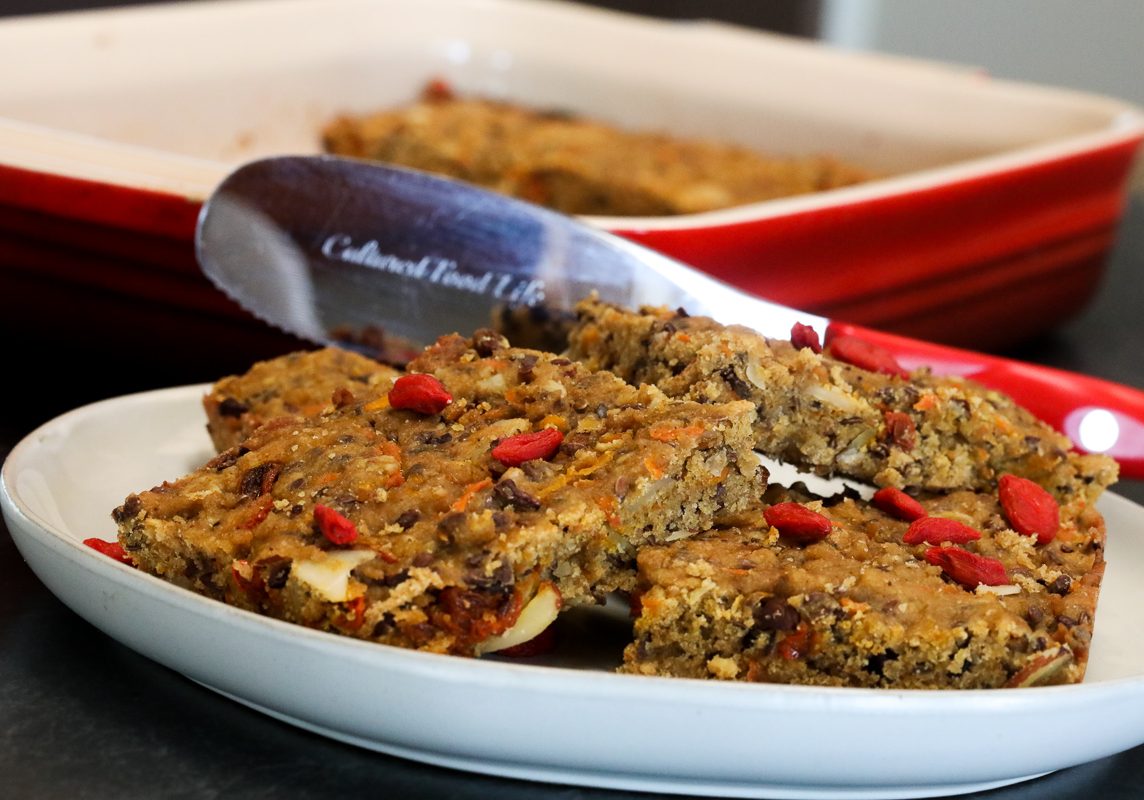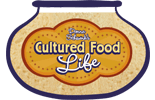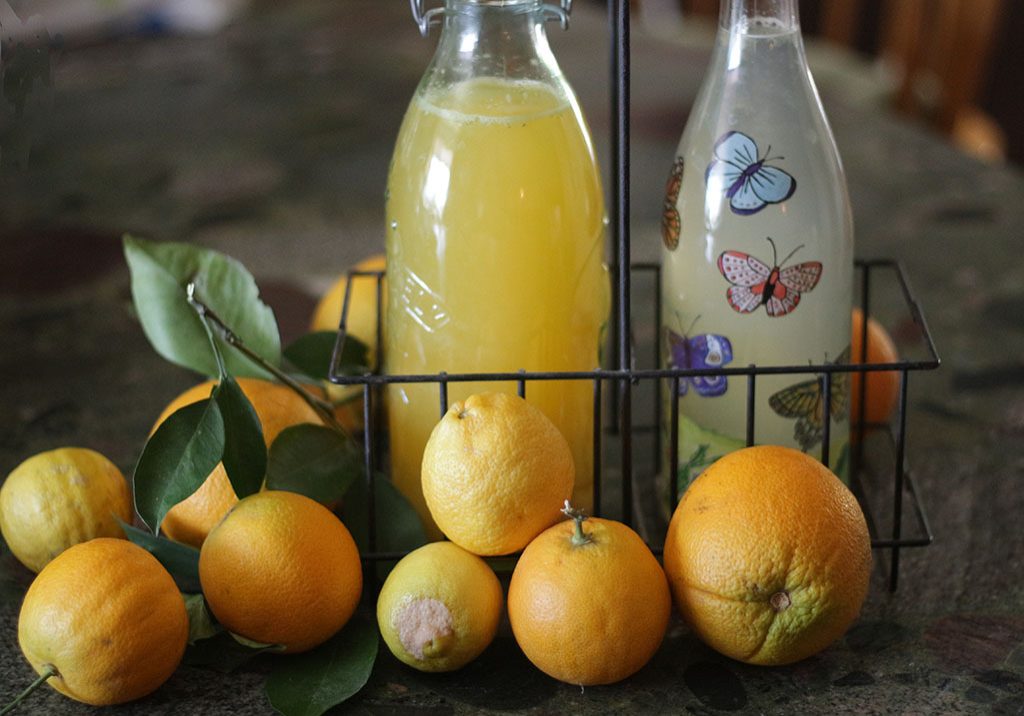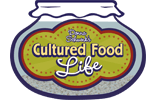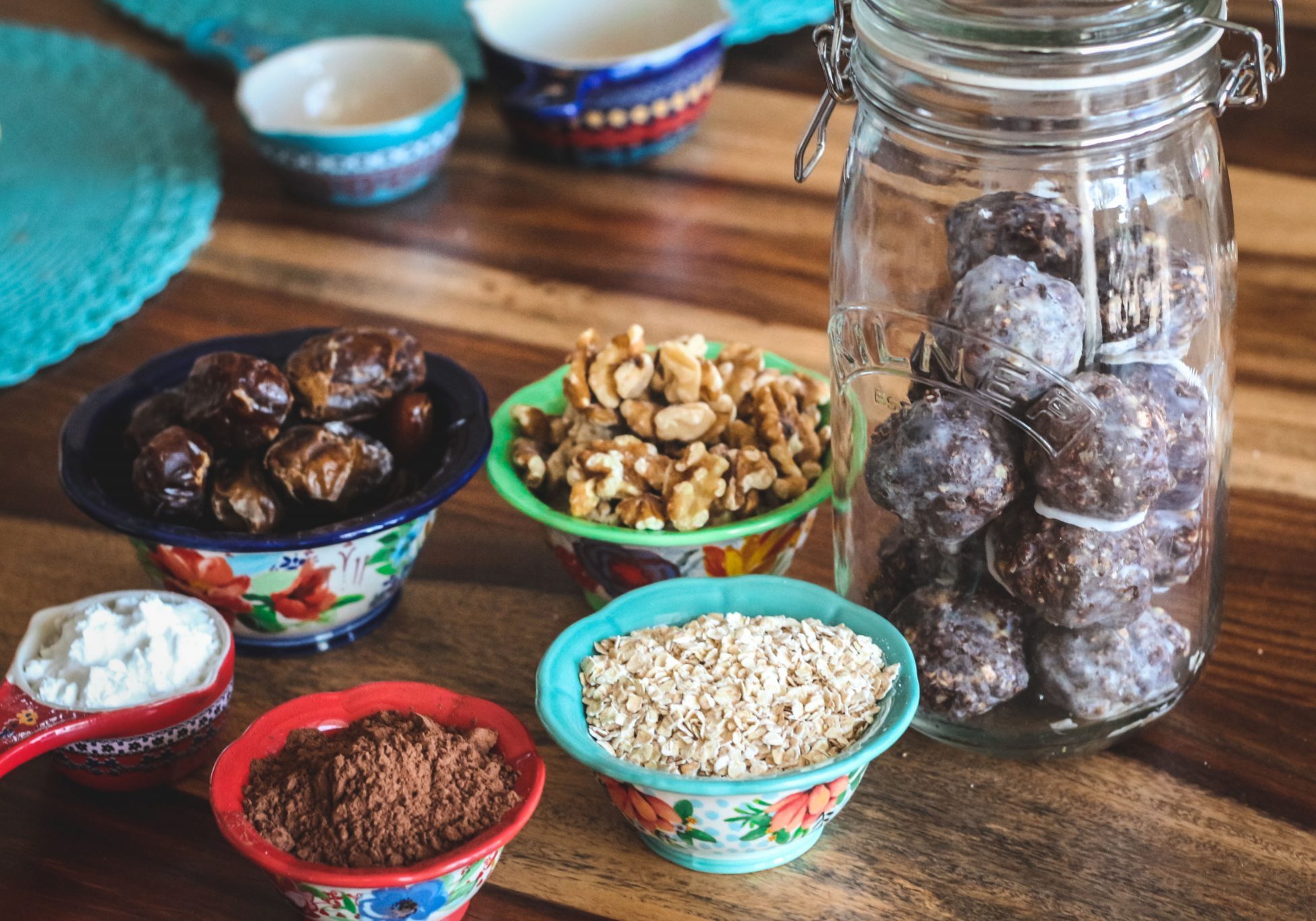
Which Are The Best Sweeteners?
Eight Different Sweeteners
The Journey
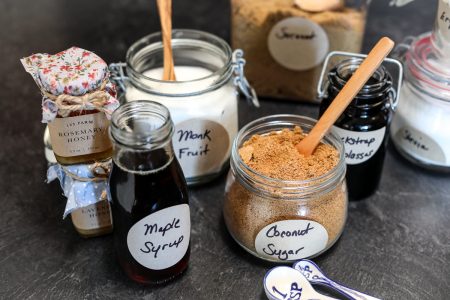 It's been quite a journey for me trying to find the right sweeteners for my family and me. It was always really important to me to find ones that wouldn't spike my blood sugar but also wouldn't harm my gut flora. It's taken over two decades to discover which ones are best for me and I'm still learning! Going back to 2001 when I found myself with diabetes and high blood sugar numbers, I swore off all sugar and turned to artificial sweeteners. At that time I was having a lot of diet soda and found that aspartame was causing problems with dizziness and vision problems. Check out this post for the story: Kombucha Healing My Addiction. I then switched to sucralose (Splenda) and started putting this in my morning smoothies until . . . I started doing my research and noticed that I was getting colds when I typically wasn't getting any. I decided that Splenda wasn't for me for many reasons.
It's been quite a journey for me trying to find the right sweeteners for my family and me. It was always really important to me to find ones that wouldn't spike my blood sugar but also wouldn't harm my gut flora. It's taken over two decades to discover which ones are best for me and I'm still learning! Going back to 2001 when I found myself with diabetes and high blood sugar numbers, I swore off all sugar and turned to artificial sweeteners. At that time I was having a lot of diet soda and found that aspartame was causing problems with dizziness and vision problems. Check out this post for the story: Kombucha Healing My Addiction. I then switched to sucralose (Splenda) and started putting this in my morning smoothies until . . . I started doing my research and noticed that I was getting colds when I typically wasn't getting any. I decided that Splenda wasn't for me for many reasons.
The gut flora is a dynamic system, and maintaining a healthy balance is so important. Studies have shown that sucralose brings changes to the gut flora and can affect many things such as immune system development, energy metabolism, and absorption. It can also impact diseases that go beyond the GI tract. One common argument used to support the safety of sucralose is that the majority of sucralose is not absorbed or metabolized in the body. However, the studies done on mice have shown that sucralose can affect the gut microbiome and its metabolic functions, and it can affect the host even though it passes through the GI tract unchanged. When Sucralose was consumed for six months or longer, it seemed to alter the gut flora and cause pro-inflammatory expression in the liver.[1] [2] Whatever the case, I was not going to have anything change the gut flora I had worked so hard to build. I love those trillions of microbes that call me home and we have a symbiotic relationship that is at the core of my everyday life. My husband called me "Hurricane Donna" the day that he came home and found every product in my house that contained Splenda was now in the trash. Nobody and no-thing messes with my gut flora.
Here is a list of sweeteners I use now for baking and everyday recipes. It's taken me two decades to figure all this out; but as I have, my gut flora has gotten stronger and so have I. I feel better than ever and it has been a journey of discovery for me. We are all different and what affects one person doesn't always affect another the same way. It's your journey too and I encourage you to listen to your body and especially your gut.
When making kombucha with different sugars there are stricter guidelines that you need to take.
Check out this link for more info:
My Favorite Sweeteners
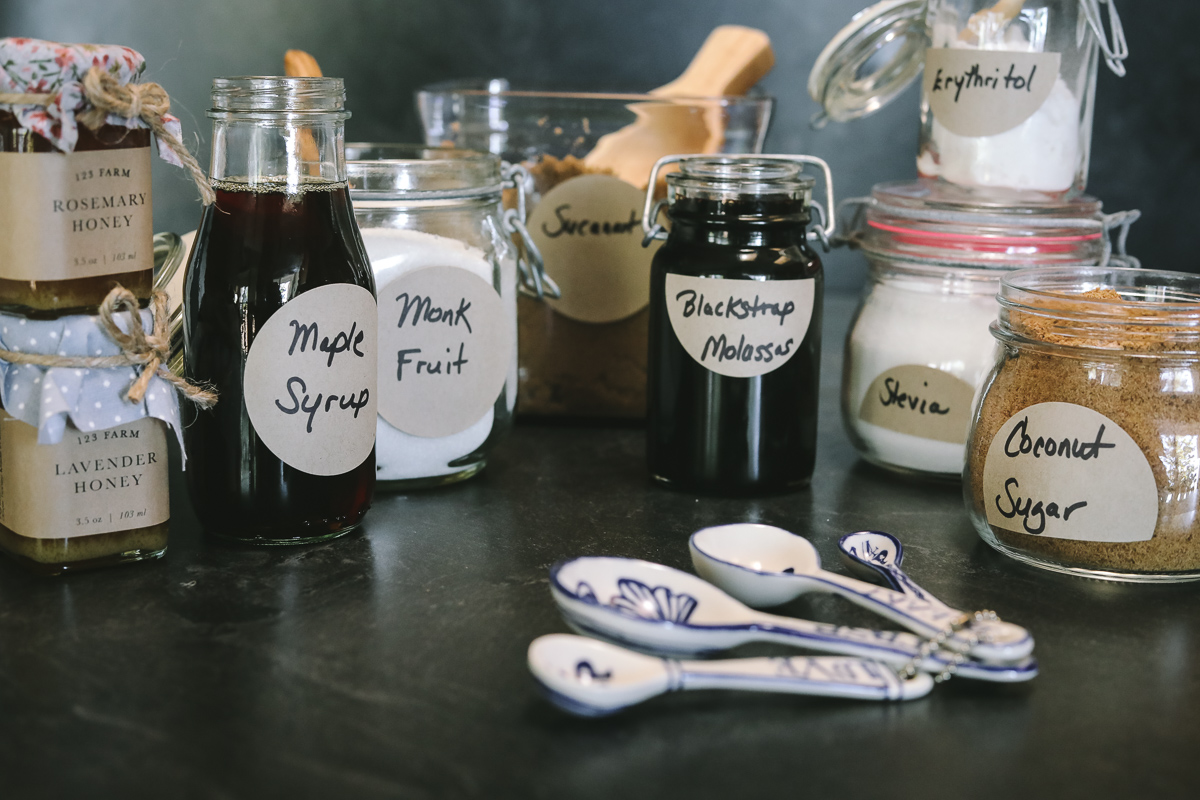
 Allulose - a Non-Caloric Sweetener:
Allulose - a Non-Caloric Sweetener:
Allulose is one of my favorite naturally occurring low-calorie sugar with the same sweet taste as normal sugar but only 1/10 the calories! Although around 70% of the allulose you consume is absorbed into your blood through your digestive tract, it leaves your body via your urine, without being used as fuel.
Several studies have found that it may lower blood sugar, increase insulin sensitivity, and decrease the risk of type 2 diabetes by protecting the insulin-producing beta cells of the pancreas. Allulose may protect against fatty liver and also may protect against muscle loss.
- It browns well under heat and is perfect for baking
- It has a low freezing point so it is great for making sugar-free ice cream
- It dissolves easily, so it's great in your coffee and other drinks
- It’s easy on the digestive tract.
- The texture and taste are the closest thing to real sugar we have found so far
It's probably the sweetener I use the most.
 Monk Fruit - a Non-Caloric Sweetener: Monk fruit is a great zero-calorie sweetener. I love the taste and use it in many of my recipes. Monk fruit, or luo han guo fruit, sugar is 150 - 200 times sweeter than cane sugar. Monk fruit has been used for hundreds of years in Southeast Asia including some parts of Thailand and China. Monk fruit contains beneficial antioxidants called mogrosides. Buddhist monks in the 13th century were the first to cultivate the fruit, which is the reason for its name. Monk Fruit Sweetener is also diabetic-friendly and has proven not to raise insulin or blood sugar. I can't say enough about it - it is hands down my favorite sweetener to use when I'm watching my sugar intake.
Monk Fruit - a Non-Caloric Sweetener: Monk fruit is a great zero-calorie sweetener. I love the taste and use it in many of my recipes. Monk fruit, or luo han guo fruit, sugar is 150 - 200 times sweeter than cane sugar. Monk fruit has been used for hundreds of years in Southeast Asia including some parts of Thailand and China. Monk fruit contains beneficial antioxidants called mogrosides. Buddhist monks in the 13th century were the first to cultivate the fruit, which is the reason for its name. Monk Fruit Sweetener is also diabetic-friendly and has proven not to raise insulin or blood sugar. I can't say enough about it - it is hands down my favorite sweetener to use when I'm watching my sugar intake.
 Date Sugar: I love date sugar and although most people don't use it as often as I do, here are the reasons I do. Date sugar tastes more like brown sugar and has a caramel taste. Date sugar is a different product than date palm sugar, despite the fact that both come from the same tree. Date palm sugar is made from the sap of the date palm tree while date sugar is made from the tree’s fruit ground up into small particles. Date sugar is as sweet as brown sugar and can be used as 1:1 substitute for it in recipes. In every teaspoon, you get two grams of fiber and it is one of the lowest sugars on low on the glycemic index coming in at 50 whereas regular sugar is 67. Because date sugar is simply ground whole dried fruit, it contains all the fruit’s nutrients — vitamins, minerals, antioxidants, and fiber. It has 10 calories per teaspoon which is about one-third lower calories than regular sugar. It also has a surprising amount of potassium with 1 percent of the Daily Value of potassium per teaspoon. I love it in baked goods but one cave note it doesn't melt like regular sugar but rather stays creamy.
Date Sugar: I love date sugar and although most people don't use it as often as I do, here are the reasons I do. Date sugar tastes more like brown sugar and has a caramel taste. Date sugar is a different product than date palm sugar, despite the fact that both come from the same tree. Date palm sugar is made from the sap of the date palm tree while date sugar is made from the tree’s fruit ground up into small particles. Date sugar is as sweet as brown sugar and can be used as 1:1 substitute for it in recipes. In every teaspoon, you get two grams of fiber and it is one of the lowest sugars on low on the glycemic index coming in at 50 whereas regular sugar is 67. Because date sugar is simply ground whole dried fruit, it contains all the fruit’s nutrients — vitamins, minerals, antioxidants, and fiber. It has 10 calories per teaspoon which is about one-third lower calories than regular sugar. It also has a surprising amount of potassium with 1 percent of the Daily Value of potassium per teaspoon. I love it in baked goods but one cave note it doesn't melt like regular sugar but rather stays creamy.
 Stevia - a Non-Caloric Sweetener: I use stevia in a lot in my recipes but I also have grown the plant and love to eat the leaves of the stevia plant. It does not raise your blood sugar and doesn't have any calories. Certain brands, including Sweetleaf Stevia Powder, can also have a prebiotic (inulin) in it which will help your good bacteria to grow. This past year I discovered something about stevia that might affect a few people. My daughter Holli started noticing that whenever she had stevia she would get a stuffy nose and cystic acne. On my quest to find out why, I discovered that stevia is a part of the ragweed family and can cause allergic reactions in those who struggle with ragweed. It doesn't seem to bother me or the rest of my family. However, I now only use monk fruit sweetener for Holli when we want a non-caloric sweetener.
Stevia - a Non-Caloric Sweetener: I use stevia in a lot in my recipes but I also have grown the plant and love to eat the leaves of the stevia plant. It does not raise your blood sugar and doesn't have any calories. Certain brands, including Sweetleaf Stevia Powder, can also have a prebiotic (inulin) in it which will help your good bacteria to grow. This past year I discovered something about stevia that might affect a few people. My daughter Holli started noticing that whenever she had stevia she would get a stuffy nose and cystic acne. On my quest to find out why, I discovered that stevia is a part of the ragweed family and can cause allergic reactions in those who struggle with ragweed. It doesn't seem to bother me or the rest of my family. However, I now only use monk fruit sweetener for Holli when we want a non-caloric sweetener.
 Maple syrup: Maple syrup has many qualities I love in a sweetener. It is loaded with antioxidants and lots of minerals such as calcium, iron, magnesium, phosphorus, potassium, zinc, copper, manganese, selenium, and vitamins. 100% real maple syrup is sourced straight from tree sap. It goes through very minimal processing before it is packaged and bottled. Maple syrup is heat stable, so you can use it in cooking. I love to use it in smoothies or desserts or baked goods.
Maple syrup: Maple syrup has many qualities I love in a sweetener. It is loaded with antioxidants and lots of minerals such as calcium, iron, magnesium, phosphorus, potassium, zinc, copper, manganese, selenium, and vitamins. 100% real maple syrup is sourced straight from tree sap. It goes through very minimal processing before it is packaged and bottled. Maple syrup is heat stable, so you can use it in cooking. I love to use it in smoothies or desserts or baked goods.
 Honey: Local raw unpasteurized honey is another sweetener I love to use. Honey is the earliest sweetener known to mankind and was used in traditional medicine in many ancient cultures. Honey has many powerful antioxidants like polyphenols, which have been shown to help combat cancer and promote heart health. It is also great for fighting off sickness since it also still contains bee pollen which has been shown to boost the immune system. Honey also possesses natural antibacterial qualities that are used to protect the beehive from infections. Egyptians used honey as a natural antibiotic and skin protectant. Honey contains hydrogen peroxide and has a low pH level. This works to pull moisture away from bacteria, causing the harmful bacteria to get dehydrated and die off. But that's not all - honey is a prebiotic, too! Honey contains oligosaccharides that can promote the growth of lactobacilli and bifidobacteria which can help make your good bacteria grow and multiply. Combining the antimicrobial components and the prebiotics together can act synergistically against certain pathogens and make your good gut flora flourish.
Honey: Local raw unpasteurized honey is another sweetener I love to use. Honey is the earliest sweetener known to mankind and was used in traditional medicine in many ancient cultures. Honey has many powerful antioxidants like polyphenols, which have been shown to help combat cancer and promote heart health. It is also great for fighting off sickness since it also still contains bee pollen which has been shown to boost the immune system. Honey also possesses natural antibacterial qualities that are used to protect the beehive from infections. Egyptians used honey as a natural antibiotic and skin protectant. Honey contains hydrogen peroxide and has a low pH level. This works to pull moisture away from bacteria, causing the harmful bacteria to get dehydrated and die off. But that's not all - honey is a prebiotic, too! Honey contains oligosaccharides that can promote the growth of lactobacilli and bifidobacteria which can help make your good bacteria grow and multiply. Combining the antimicrobial components and the prebiotics together can act synergistically against certain pathogens and make your good gut flora flourish.
🐝 Check out your local farmers market to find Local Honey 🐝
 Sucanat: Sucanat is natural cane sugar that is made by extracting the juice from sugar cane and then beating it with paddles to form granules. Sucanat retains its natural molasses which is what gives it a richer taste and also contains trace amounts of iron, calcium, vitamin B6, potassium, and chromium. The molasses flavor changes the way Sucanat affects the taste of a recipe so I mostly use coconut sugar since I think it has more benefits and tastes better too.
Sucanat: Sucanat is natural cane sugar that is made by extracting the juice from sugar cane and then beating it with paddles to form granules. Sucanat retains its natural molasses which is what gives it a richer taste and also contains trace amounts of iron, calcium, vitamin B6, potassium, and chromium. The molasses flavor changes the way Sucanat affects the taste of a recipe so I mostly use coconut sugar since I think it has more benefits and tastes better too.
 Coconut Sugar: Coconut sugar comes from coconut tree blossom nectar. One of my favorite things about this sweetener is that it doesn't spike blood sugar as much as other natural sweeteners due to its low glycemic index and minimal processing. It also contains B vitamins, potassium, chloride, and other vitamins, minerals and enzymes that aid in slower absorption into the bloodstream. I have seen and witnessed these many benefits. My blood sugar does much better with coconut sugar than most other natural sweeteners. My favorite thing about coconut sugar is the prebiotic it contains. Inulin, a type of dietary fiber that is a huge prebiotic) has the ability to promote the growth of intestinal bifidobacteria which have been known to help restore the good bacteria in the gut and also boost your immunity.
Coconut Sugar: Coconut sugar comes from coconut tree blossom nectar. One of my favorite things about this sweetener is that it doesn't spike blood sugar as much as other natural sweeteners due to its low glycemic index and minimal processing. It also contains B vitamins, potassium, chloride, and other vitamins, minerals and enzymes that aid in slower absorption into the bloodstream. I have seen and witnessed these many benefits. My blood sugar does much better with coconut sugar than most other natural sweeteners. My favorite thing about coconut sugar is the prebiotic it contains. Inulin, a type of dietary fiber that is a huge prebiotic) has the ability to promote the growth of intestinal bifidobacteria which have been known to help restore the good bacteria in the gut and also boost your immunity.
 Blackstrap Molasses: Blackstrap molasses comes from sugar cane which is mashed to create juice and then boiled once to create cane syrup. A second boiling creates the molasses. Then it is boiled a third time and the dark viscous liquid emerges known as blackstrap molasses. It has the lowest sugar content of any sugar cane product and it has many vitamins and minerals such as iron, calcium, magnesium, vitamin B6, potassium, copper, and selenium. It has a low glycemic impact and helps to slow how the body breaks down and absorbs glucose. It has a strong taste so can't be used in every recipe, but I do love it in bread. Always buy blackstrap molasses, since the triple boiling and sugar extraction process results in blackstrap molasses being a more nutritionally dense sweetener than plain or "second" molasses.
Blackstrap Molasses: Blackstrap molasses comes from sugar cane which is mashed to create juice and then boiled once to create cane syrup. A second boiling creates the molasses. Then it is boiled a third time and the dark viscous liquid emerges known as blackstrap molasses. It has the lowest sugar content of any sugar cane product and it has many vitamins and minerals such as iron, calcium, magnesium, vitamin B6, potassium, copper, and selenium. It has a low glycemic impact and helps to slow how the body breaks down and absorbs glucose. It has a strong taste so can't be used in every recipe, but I do love it in bread. Always buy blackstrap molasses, since the triple boiling and sugar extraction process results in blackstrap molasses being a more nutritionally dense sweetener than plain or "second" molasses.
Recipes with My Favorite Sweeteners
Listen To My Podcast
It's been quite a journey for me trying to find the right sweeteners for my family and me. It was always really important to me to find ones that wouldn't spike my blood sugar but also wouldn't harm my gut flora. Check out my favorite sweeteners, you might be surprised by what you learn!
References I talked about:
References:
- https://www.ncbi.nlm.nih.gov/pmc/articles/PMC5522834/
- https://www.ncbi.nlm.nih.gov/pubmed/18800291
- Boesten, Danielle, et al. Health Effects of Erythritol. Research Gate. March 2015.
- Artificial Sweeteners and Other Sugar Substitutes. Mayo Clinic. Sept 25, 2018.
Are you on the list?
Sign up today and I'll send you my free Getting Started Guide!
Each week I'll send you updates, tips, recipes, and more! You might even be a winner of my weekly giveaway! (starter cultures, memberships, and more!)
Come be a part of my cultured food family!

